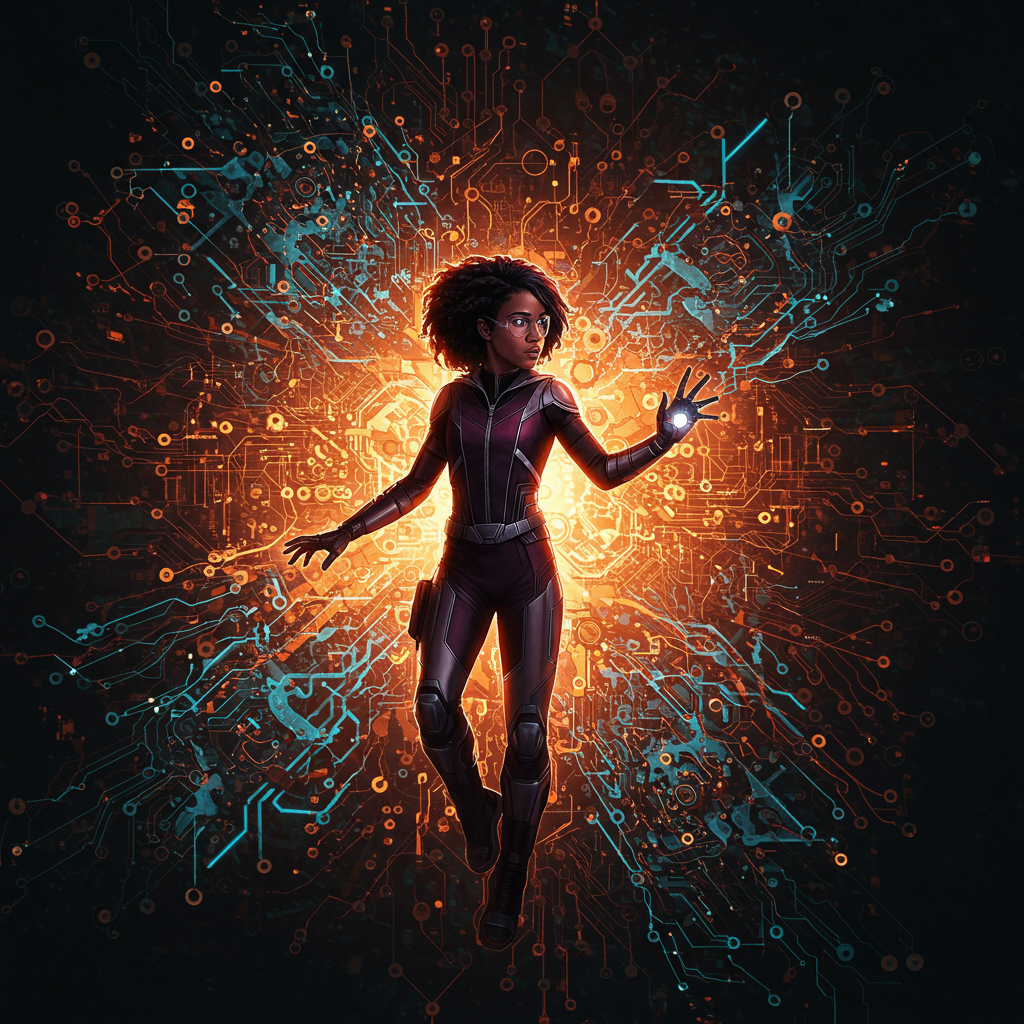Ironheart Episode 1 Recap: “Take Me Home”
Marvel’s latest Disney+ series, Ironheart, introduces audiences to Riri Williams (Dominique Thorne), the brilliant teenage inventor first seen assisting Shuri in Black Panther: Wakanda Forever. This premiere episode, titled “Take Me Home,” picks up Riri’s story after her Wakandan adventure and firmly establishes her place in a post-Tony Stark MCU. While Riri previously appeared as an awestruck genius thrust into global conflict, this episode reveals a more complex, grounded character grappling with immense personal loss and navigating a challenging new reality.
The episode quickly grounds Riri in the academic world of MIT, where she’s struggling not just with her ambitious, multi-million dollar Ironheart suit project, but with the bureaucracy and financial realities that stand in her way. Despite her unparalleled intellect – evidenced by her side hustle selling assignments to fund her research – Riri finds herself at odds with the system. A key moment arrives when she pitches her suit’s potential for revolutionizing first response, only to be met by Dean Choi’s harsh assessment of her academic record: disciplinary issues, lab damage, and ultimately, expulsion. Thorne’s performance captures the shock and lack of self-awareness of a prodigy who isn’t used to failure, particularly when her character flaws are called into question.
Escorted off campus, Riri takes her suit-in-progress with her. However, a swift administrative move deactivates her student ID, grounding her sophisticated AI system, TRVOR, mid-flight just minutes from her Chicago home. The resulting crash-landing in the streets of Bronzeville serves as both a literal and metaphorical “crash-out,” forcing Riri back to her roots and the community that truly “sees” her.
Home and Heartbreak
Bronzeville, depicted through its vibrant Black-owned businesses like the historic Regal Theater, offers a stark contrast to the sterile environment of MIT. Here, Riri’s distress is immediately recognized by neighbors, friends, and family. Her return home brings her face-to-face with her mother, Ronnie, and her concerns about Riri’s recent behavior.
Through Ronnie and her friend Madeline (Cree Summer), the episode reveals the profound source of Riri’s current listlessness and problematic choices: the tragic loss of both her best friend Natalie and stepfather Gary five years prior in a drive-by shooting. A poignant flashback shows young Riri and Natalie sharing ambitious dreams – Riri wanting to surpass Tony Stark, Natalie a more whimsical desire involving Thor. This trauma, stemming from the very garage where she now works on her suit, is the emotional core driving Riri’s actions. The show frames Riri’s grief and survivor’s guilt as the key to understanding her flippant attitude towards school, her struggles with vulnerability, and her wavering moral compass. This deep dive into Riri’s personal pain and relationships underscores how character-driven narratives can explore complex emotional landscapes, mirroring the focus on internal struggles and interpersonal dynamics seen in other serialized dramas.
A Dangerous Offer
While reconnecting with her past, Riri’s path intersects with a more dangerous future. The episode introduces Parker (Anthony Ramos), known as “The Hood,” and his criminal crew, including his cousin John (Manny Montana, bringing a familiar intensity). After a botched heist highlights their need for a skilled tech expert, John spots Riri at a local scrap yard, recognizing her potential.
In a highly unconventional and tense “interview” orchestrated by Parker, Riri is lured into an elevator that becomes a ticking bomb scenario. Her ability to think under pressure and creatively bypass the trap impresses The Hood’s crew. Parker makes his pitch: if Riri is tired of being broke and underestimated, she should join him. Despite initial reluctance, a briefcase full of cash proves tempting for the now-expelled, financially strapped inventor desperate to fund her research. The offer forces Riri to confront the morally grey areas of her ambition – is revolutionizing technology worth collaborating with criminals? This dilemma of talented individuals finding a place within unconventional or morally ambiguous structures serves as a dramatic engine, exploring themes of necessity versus morality within a larger, interconnected universe.
Riri agrees, with the condition that no one gets hurt, but the price is steep: she must bring the suit.
Setting the Stage
As Riri works tirelessly through the night to repair her damaged Ironheart suit, fueled by Xavier’s mixtape (which tragically features a recording of Natalie), the weight of her grief is palpable. The sounds and setting trigger painful memories of the night that changed everything, solidifying the emotional stakes driving her journey.
The episode concludes on a stunning note. As Riri drifts off, exhausted but successful in uploading her suit’s system, she’s startled by a voice calling her name. Opening her eyes, she sees a glitchy, holographic image – the face of her deceased best friend. Natalie is back, albeit in a digital form, delivering a sassy line that immediately cements her potential as a compelling new presence. This dramatic reveal not only serves as a powerful cliffhanger but also hints at how characters and relationships can evolve and continue in surprising ways within these expansive narratives, setting up a key relationship arc for the season ahead.
The Ironheart premiere effectively lays the groundwork for Riri’s solo adventure, positioning her as a brilliant but flawed protagonist navigating grief, expulsion, and a tempting offer from the criminal underworld, all while hinting at the technological resurrection of her past. It functions as a crucial introductory chapter, expanding the MCU tapestry by diving deep into a character first glimpsed on the big screen, setting the stage for her evolution from a grieving prodigy to a potential hero, or something far more complex.


